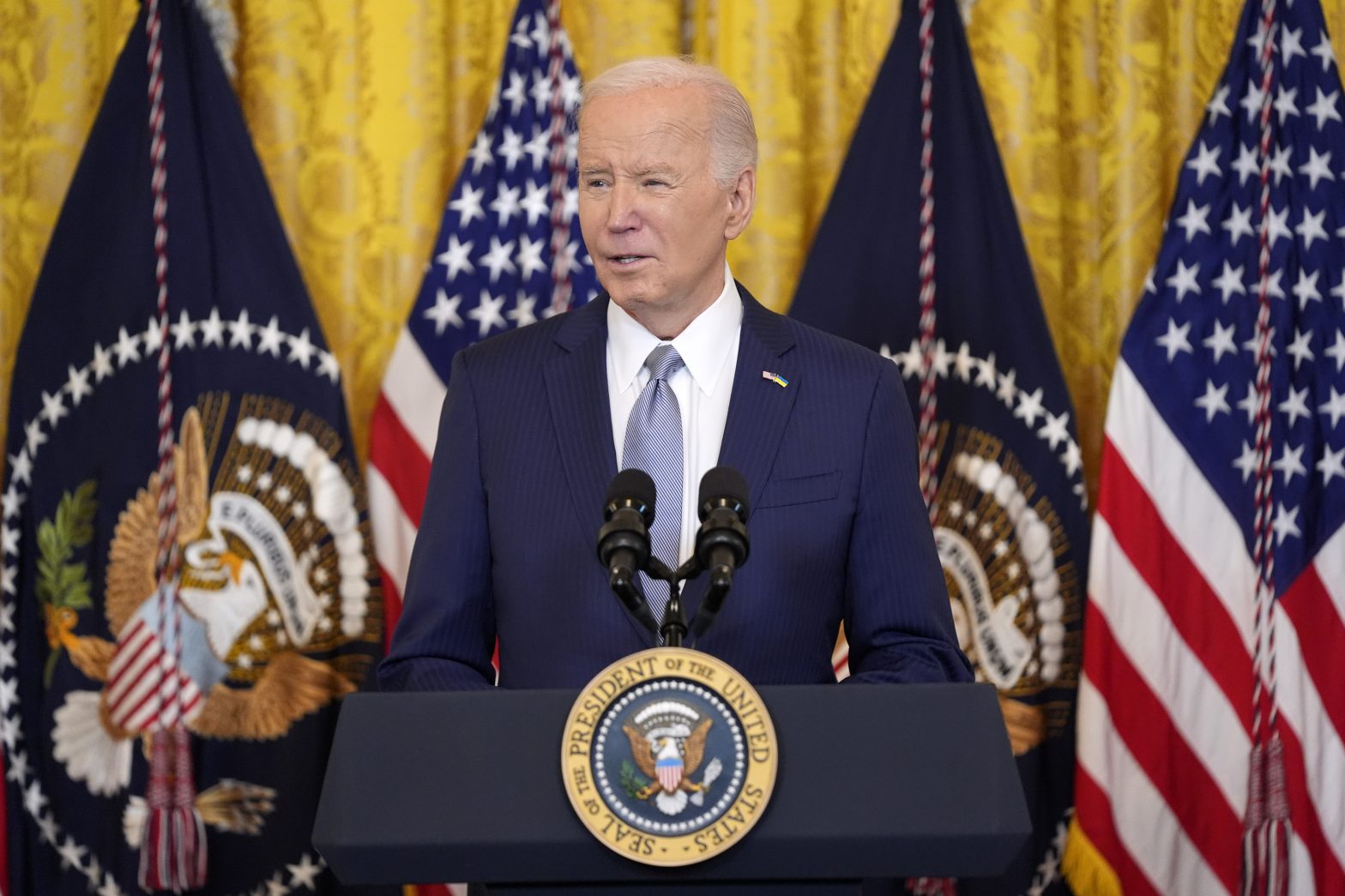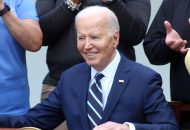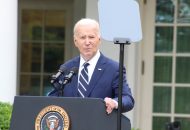Biden, Democrats Should Double Down on Bipartisanship
COMMENTARY

Like many Americans, I am troubled by the recent decision by some Republicans on Capitol Hill to walk away from the Senate deal — negotiated in good faith by lawmakers from both parties and an independent — to protect the border, and provide critical funds to Ukraine and Israel.
Those Republicans blocking this proposal have made a political calculation that voters prefer partisanship, not progress through deal making. I disagree and believe that this strategy will not serve Republicans or former President Donald Trump well, in the long-term.
To draw a stark contrast with these cynical tactics, I believe that Democrats and President Joe Biden should double down on striving to achieve bipartisan consensus on important issues that impact people’s lives.
For example, unless Congress reverses years of successive Medicare cuts — and passes long-term Medicare reform to stabilize the system — the health care safety net will continue to be hollowed out. Medicare reimbursements have dropped precipitously in recent years. Since 2001, they have decreased by 26%. In January, a new 3.37% cut went into effect.
But right now, over 56 million Americans rely on Medicare to help cover the costs of primary and specialty care, hospitalization, skilled nursing, prescription drugs and more. In the decades ahead, as life expectancy in the United States remains high and the population ages, the number of Medicare beneficiaries will surge nearly 70% to 94.7 million Americans by 2060.
Congress should encourage more doctors to enter the field and open their doors to high-need communities. Yet, as the Medicare population balloons, the physician shortage is set to worsen and insufficient Medicare reimbursement rates could force doctors to potentially abandon treating patients with Medicare as their primary coverage.
To prevent the most immediate threats to the social safety net, Congress should pass two laws — H.R. 6683, the Preserving Seniors’ Access to Physicians Act of 2023, and H.R. 2474, the Strengthening Medicare for Patients and Providers Act. Both will ensure the long-term support for physicians who treat Medicare patients and, importantly, each proposal has bipartisan co-sponsor support.
Passing these laws would be important for a state like mine (and the Senate majority leader’s), New York, where we have a high number of Medicare beneficiaries and doctors under financial strain. Helping Americans secure access to health care is a winning political issue as well.
Besides working to achieve bipartisan policy changes to protect Medicare, perhaps the greatest challenge facing Congress and the president is keeping the government open. In March, the most recent continuing resolution (a law that keeps the government operating at its current funding levels) is set to expire.
Led by Trump, I am afraid that a handful of Republicans could try and force the government to close. Their goal is to try and convince voters that Biden cannot govern and that the only solution is to vote for Trump. Ultimately, my belief is that this level of partisanship will not win over a majority of voters in any purple district or swing state that determines who controls Congress or the White House.
In this election year, I know there are voices in both parties who assert that seeking bipartisan solutions is a waste of time. But, keep in mind, just a few weeks ago, the House passed bipartisan tax legislation to help 16 million children living in low-income families.
Therefore, I urge Democrats, and the many sensible Republicans, to continue to embrace bipartisan lawmaking and not be discouraged. If the extreme elements in Congress want to try and sow discord in Washington, we must do everything we can to thwart them. And, for the election watchers, remember that when lawmakers find bipartisan solutions to the nation’s challenges, it is also good politics.
Eliot Engel, of New York, represented portions of the Bronx, Westchester and Rockland Counties in the U.S. Congress, from 1989-2021. He can be reached on X.























